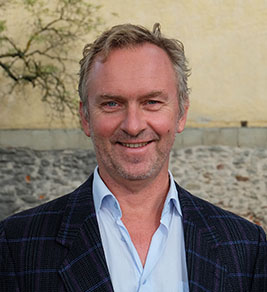The REGINA project addresses the social issues as well as the challenges posed in terms of economic and environmental sustainability when developing local resource based economies. At the recent REGINA partner meeting in Greenland a new guide on how to handle social impacts of major changes in local communities was presented.
One of the three main toolboxes to come out of the REGINA project is a so called SIMP (Social Impact Management Plan), that looks at the social effects in remote communities involved in major change processes. The guide outlines potential challenges and presents advice on how to handle them.
The SIMP guide was launched at the REGINA partner meeting in Kujalleq municipality in Greenland in the beginning of September. One aim of the guide is to continuously monitor social change to soften the blow from large scale industries operating in the local area. But it also looks at the positive side of the coin and explores the human potential in local communities.
The guide provides guidance to work with citizen participation and public involvement to manage social impacts of large scale resource based industries extracting natural resources. It looks specifically at a mining project and is developed in cooperation with Sodankylä municipality in Finland, but the results are applicable within other sectors and in other local projects too.
People matter
– We talk a lot about natural resources when discussing development. But maybe we should focus a bit more on human capital and “people potential”. We should not just look at the challenges, but also at the quality of life in remote communities, said one of the writers of the guide, University Lecturer Leena Suopajärvi from the University of Lapland in connection with the partner meeting in Greenland.
The REGINA project has adapted the concept of Smart Specialisation Strategies used widely in the EU to promote regional development to the reality of small remote communities, adding a local perspective to the concept. This often reveals many nuances and needs left out in larger contexts, including the social aspects of major changes in smaller settings.
In addition to the SIMP-report the REGINA Demographic Foresight Model (DFM) and upcoming DFM handbook done by Senior Researcher Andrew Copus from the Nordic Centre for Regional Studies, Nordregio, was also presented at the partner meeting.
The model offers municipalities the opportunity to deal with shock scenarios and long-term impacts on the population from developments within resource based industries. Finally, the upcoming REGINA Local Benefits Analysis Toolbox due later this year was discussed.
The REGINA project will be finalized by September 2018 with the publication of an on-line handbook including the three toolboxes along with a series of case studies and other materials to guide the development of local smart specialization strategies.



